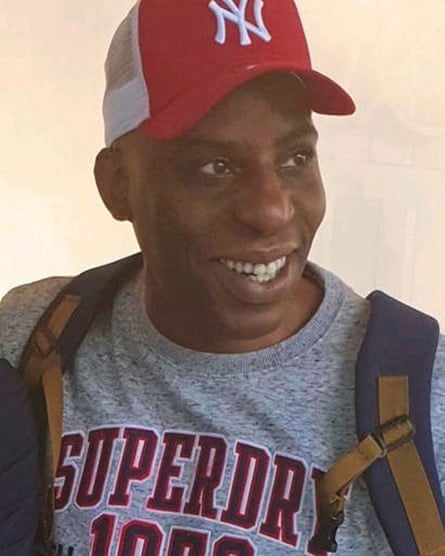Officers involved in the high-profile deaths of two black men in London have yet to be interviewed under caution, prompting fury among their families.
The family of Oladeji Omishore say it is “unacceptable” that the police officers who repeatedly Tasered the 41-year-old before he fell off Chelsea Bridge continue to be treated as witnesses four months after his death.
Last night, the Met provoked further disquiet when they confirmed that the two officers involved remained “on full duties”.
The family of Chris Kaba, an unarmed 24-year-old shot dead by a firearms officer in south London last month, are equally furious that, despite the police watchdog inquiry into the shooting being upgraded to a homicide investigation, the person who fired the fatal shot has still not being interviewed under caution after nearly a month.
“The firearms officer who killed Chris must be interviewed under caution by the IOPC (Independent Office for Police Conduct) without further delay,” the family said in a statement.
The inquest into the death of Kaba, who was shot after a car chase that ended in Streatham, south London, on the night of 5 September, opens this Tuesday.
The Omishore family – who would have celebrated Oladeji’s 42nd birthday last Tuesday – are said to be bewildered over the approach taken by the IOPC into the events that led to his death on 4 June.
In a statement to the Observer, the Omishore family said: “We are very concerned that the officers involved are still not being interviewed under caution. We are concerned that key information may be lost or diluted, which further impacts our mistrust and confidence in the police complaints and misconduct system. It is a travesty that the IOPC continue to suggest that the threshold for declaring this a conduct investigation in their view has not been met.”

Footage has circulated on social media showing a distressed Omishore, in T-shirt and shorts, being Tasered before later falling from the bridge into the River Thames.
Lucy McKay, spokesperson for the charity Inquest, said: “How can we have confidence in the processes for investigating deaths when officers involved are not questioned for weeks or months? It is only fair that police, as public servants who owe us all a duty of care, should be treated with the same scrutiny as anyone else involved in a death, if not more. Bereaved people, like the Omishore and Kaba families, should not have to challenge the failure to promptly and properly question officers at a time when they are dealing with profound loss.”
It has also emerged that the officers who restrained and Tasered Darren Cumberbatch have still not been interviewed under caution – more than five years after the 32-year-old died after police contact. A 2019 inquest into Cumberbatch’s death found that force used by police was “excessive”, after hearing how he was punched 15 times.
Two months ago, the IOPC announced that it would reinvestigate Cumberbatch’s death, admitting that its original probe was “flawed”.
An IOPC spokesperson said the Cumberbatch reinvestigation was in its “initial stages” and that no key decisions have been taken regarding officers’ actions.
“We do not want a repeat of what happened in the Cumberbatch case, whereby the officers were also initially treated as witnesses, rather than subjects, only for the IOPC to re-investigate as a conduct investigation five years later. That is not acceptable,” said the Omishore family.
A landmark report, also five years ago, into deaths after police contact concluded that such cases should be dealt with as speedily as a civilian homicide case.
It stated: “Such cases should be dealt with in the same timescale as civilian homicide cases. The appropriate resources must be deployed by all agencies to achieve the completion of the investigation and decision-making processes within the robust timescale achieved in those cases.
“In addition, the [police watchdog] should consider making a formal written request for the restriction of duties (in misconduct investigations) and the suspension of officers pending the outcome of gross misconduct and/or criminal investigations.”
Critics claim that the present system allows officers time to draw up statements and confer, although there is no suggestion that this applies to officers in the Kaba and Omishore investigations.
McKay added: “This allows time for stories to change, conferral between officers, and strategies to be built which curtail appropriate scrutiny of the circumstances. We have seen this happen time and time again in various cases.”
The issue was highlighted months before the Home Office’s publication of the Angiolini review, when it emerged that, before making his first detailed statement, a Manchester firearms officer who fatally shot an unarmed man met the officer from the Met who shot Mark Duggan in August 2011.
Watchdog sources said that Kaba was the subject of “an ongoing homicide investigation” and they wouldn’t be providing a running commentary. With Omishore the source added there was “no indication at this stage” that the officers involved had breached police professional standards or may have committed a criminal offence. The Met stating it is “fully co-operating” with the watchdog’s investigation.
